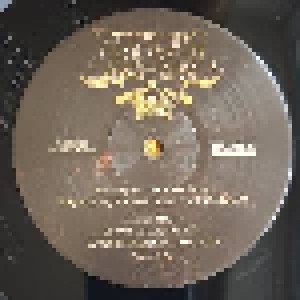

Danzig’s subtle croon only intensifies the effect of the blaze-stoked by desperate longing, he sounds that much more demonic. Throughout the album, Danzig, guitarist John Christ, bassist Eerie Von, and drummer Chuck Biscuits achieve a bigger, denser sound than they’d previously had. The title track poses a heavy question in a soft tone: “If you feel alive/If you’ve got no fear/Do you know the name/Of the one you seek?” The implication is clear: Are you ready for power you may not be able to comprehend? Are you ready to go to the next level? He and his bandmates surely were. It’s Danzig at his most sinister, yet also his most human.ĭanzig’s voice has always carried a hint of tenderness, and in How the Gods Kill’s slower tracks, that quality comes to the fore.

Before all that, though, there was one album that lived up to the mighty image he’d built: 1992’s Danzig III: How the Gods Kill, where the classic lineup of his solo band in its prime found an emotional maturity unmatched by any record he made before or after. No metal god is truly immortal, infallible, or devoid of humanity, so perhaps we shouldn’t have been surprised to find by the mid-’90s that Danzig, at his core, is the sort of guy who gets bummed that kids didn’t trick-or-treat at his house. In time, many fans went from exalting “Tired of Being Alive,” the down-and-out rallying cry from 1990’s Danzig II: Lucifuge, to actually being tired of his conspiracy-minded nonsense and questionable art direction. His music was tight and muscular, and he made sure he and his band appeared that way, too, particularly after he moved from New Jersey to L.A. Given the way he built himself up in his first decade of public life, he was bound to fall sooner or later: Danzig presented himself as a smooth-voiced demon, a guy with a library of occult tomes and an endless supply of primal lust-the very stuff of Parental Advisory label hysteria and banned MTV videos.


Glenn Danzig’s career is a case study in the unsustainability of rock mythologizing.


 0 kommentar(er)
0 kommentar(er)
